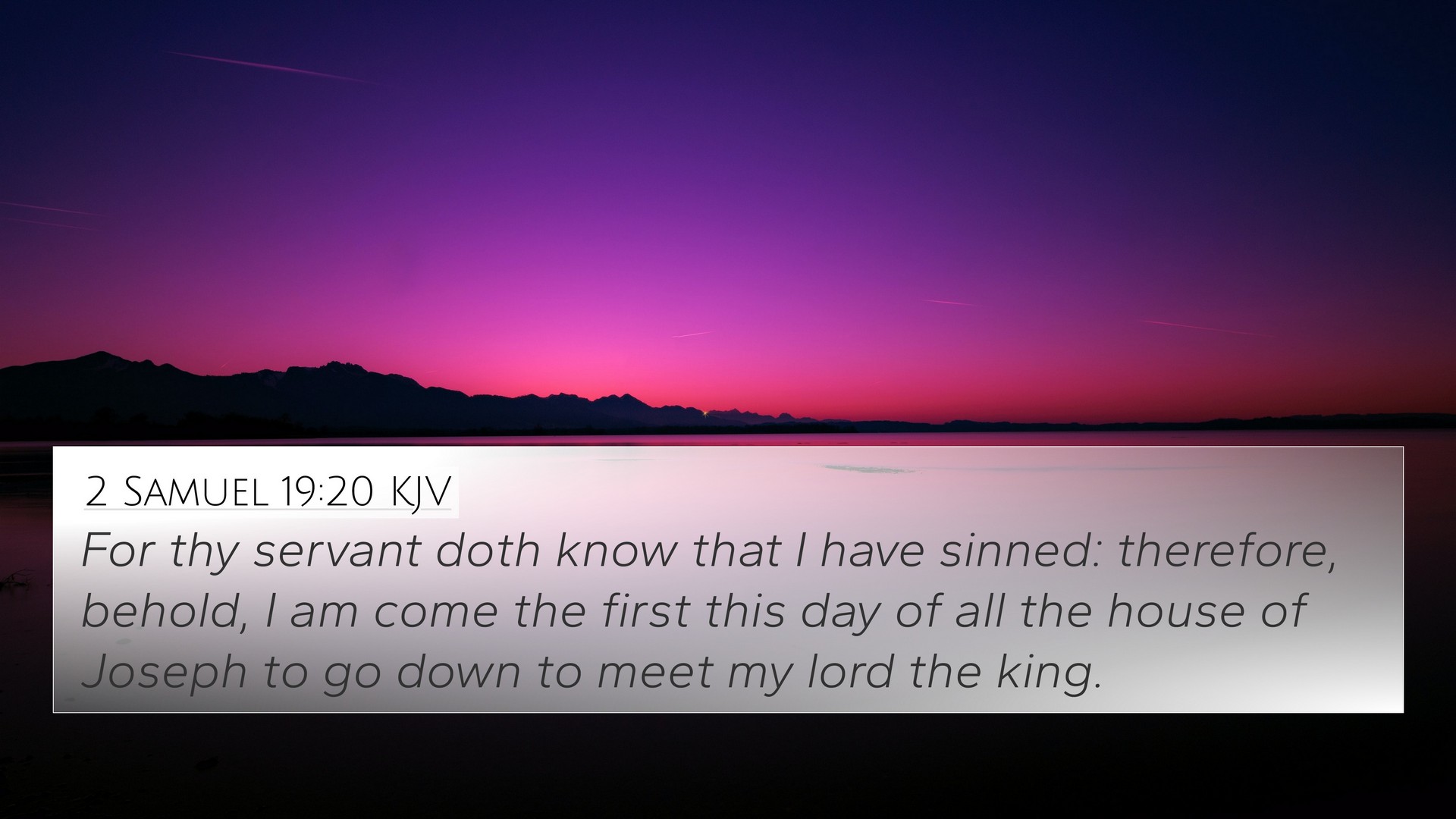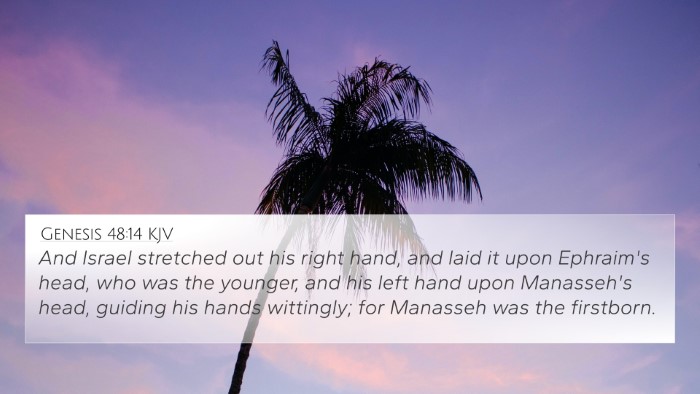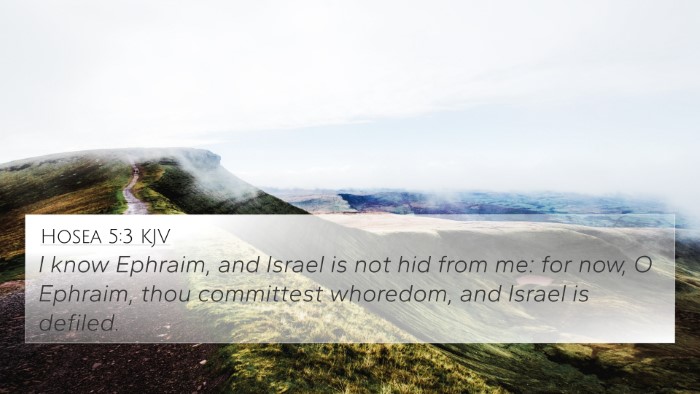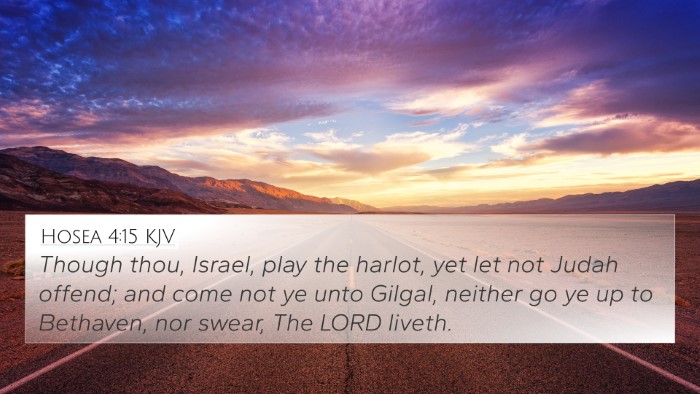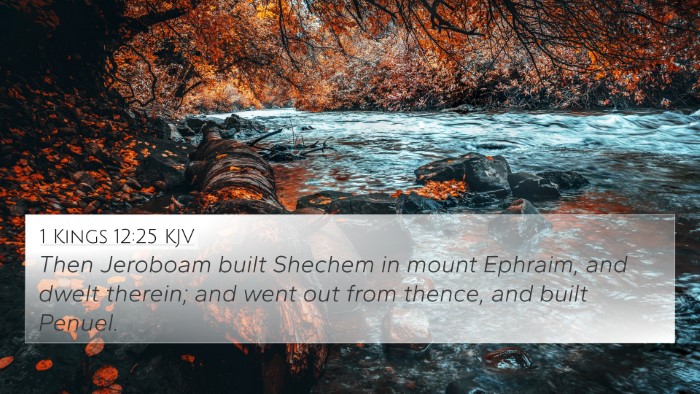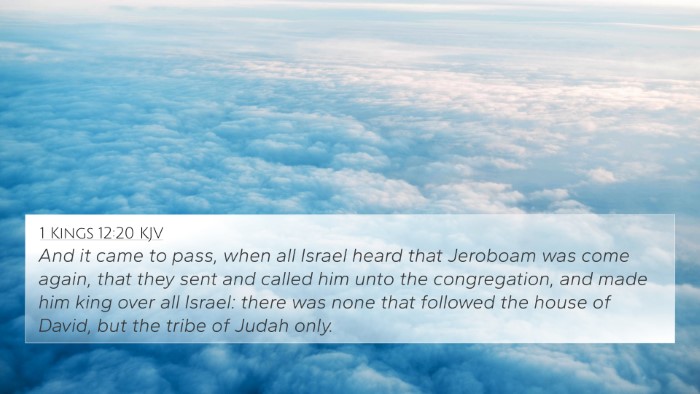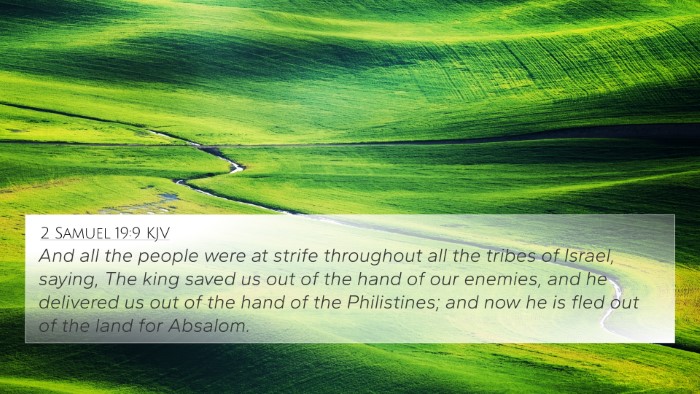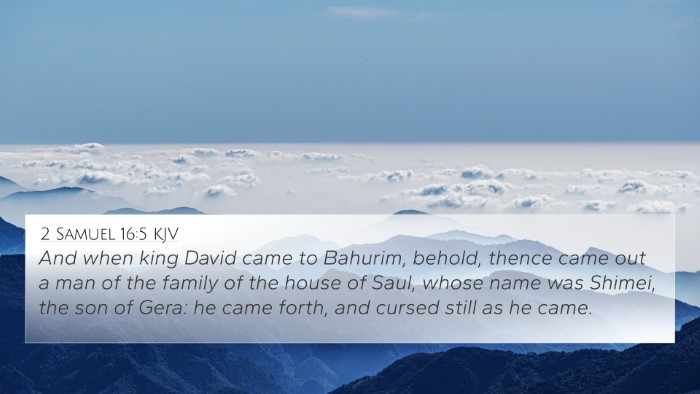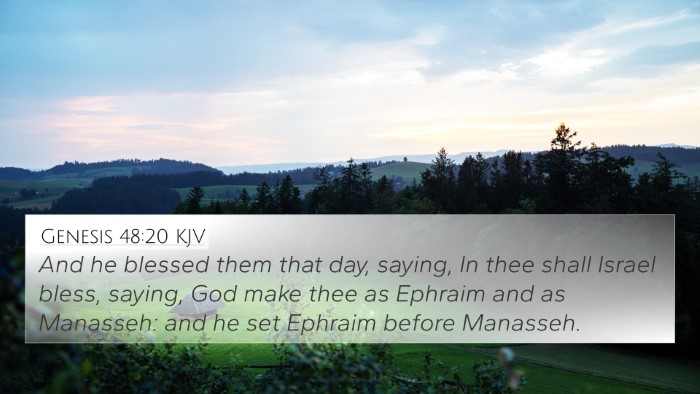Understanding 2 Samuel 19:20
In 2 Samuel 19:20, we find Shimei, a man who previously cursed King David, now repenting and seeking forgiveness. This verse highlights themes of grace, redemption, and the complexities of human relationships, particularly concerning the actions of those who have wronged others.
Summary and Analysis of 2 Samuel 19:20
The context of this verse is critical. David has just returned to Jerusalem after being ousted by his son Absalom. Shimei, who had cursed David during his flight, now comes to plead for mercy, expressing that he is aware of his wrongdoing. This act of humility carries significant theological weight; it shows that even those who have sinned grievously can find redemption.
Theological Insights from Public Domain Commentaries
-
Matthew Henry: Henry notes that Shimei's acknowledgment of his sin illustrates the importance of repentance. David's response reflects his grace, teaching us that forgiveness is vital, even when one has suffered wrong.
-
Albert Barnes: Barnes emphasizes the character of Shimei as a representation of humanity's tendency to waver in loyalty, showcasing that individuals often act out of impulse and fear. His seeking of David's favor indicates the acknowledgment of authority.
-
Adam Clarke: Clarke comments on the nature of Shimei's confession as being sincere, perhaps driven by fear of retribution. He explores the idea that such repentance is a path back to favor, illustrating divine mercy.
Key Themes in 2 Samuel 19:20
The themes found within this verse echo throughout the Scripture, making it relevant to various aspects of biblical faith:
- Repentance: The act of recognizing one's faults and seeking forgiveness is deeply rooted in biblical teaching.
- Grace and Forgiveness: David's willingness to consider Shimei's plea illustrates the transformative power of grace.
- The Complexity of Relationships: This passage reflects on how relationships can be mended, even after betrayal.
Cross-References for 2 Samuel 19:20
Here are some cross-references that provide further context and deepen the understanding of this verse:
- 1 Samuel 24:16-22: David spares Saul, illustrating mercy even to enemies.
- Luke 6:37: The New Testament perspective on forgiveness and judgment.
- James 2:13: Emphasizes mercy over judgment, aligning with David's response to Shimei.
- Proverbs 28:13: The importance of confessing sins to receive mercy.
- Matthew 5:7: “Blessed are the merciful, for they shall receive mercy.”
- Psalm 51:17: The right heart is a key element in sin and repentance.
- 2 Samuel 16:5-8: The background of Shimei’s cursing of David.
Connections and Parallels
Exploring the connections between Bible verses enhances understanding and reveals themes that run throughout the Scriptures:
By linking the themes of repentance and forgiveness found in 2 Samuel 19:20 with New Testament teachings, such as those in the Gospels and the letters of Paul, readers can appreciate the continuity of God's message across the canon.
The idea of transferring guilt and seeking forgiveness is a recurring theme in Scripture, reinforcing the connection between the Old and New Testaments. Shimei's actions serve as a reminder that all individuals can turn back to God regardless of their past, a principle echoed in both testaments.
Practical Application for Modern Believers
2 Samuel 19:20 provides valuable lessons for believers today:
- Embrace Forgiveness: Just as David forgave, we are called to forgive others, reflecting God’s mercy.
- Practice Humility: Admitting wrongs and seeking forgiveness from others is a strength, not a weakness.
- Understand Grace: Recognize that God's grace can redeem anyone, regardless of their past actions.
Conclusion
The impact of 2 Samuel 19:20 reaches far beyond its immediate context, offering profound insights into the nature of sin, grace, and the hope of redemption. By engaging with public domain commentaries and exploring scriptural cross-references, readers can deepen their understanding and appreciate the intricate links between biblical texts.
For those studying scripture, tools for Bible cross-referencing, such as a Bible concordance or a cross-reference Bible study guide, can greatly aid in exploring the connections between verses like 2 Samuel 19:20 and others that relate to themes of forgiveness and repentance.
